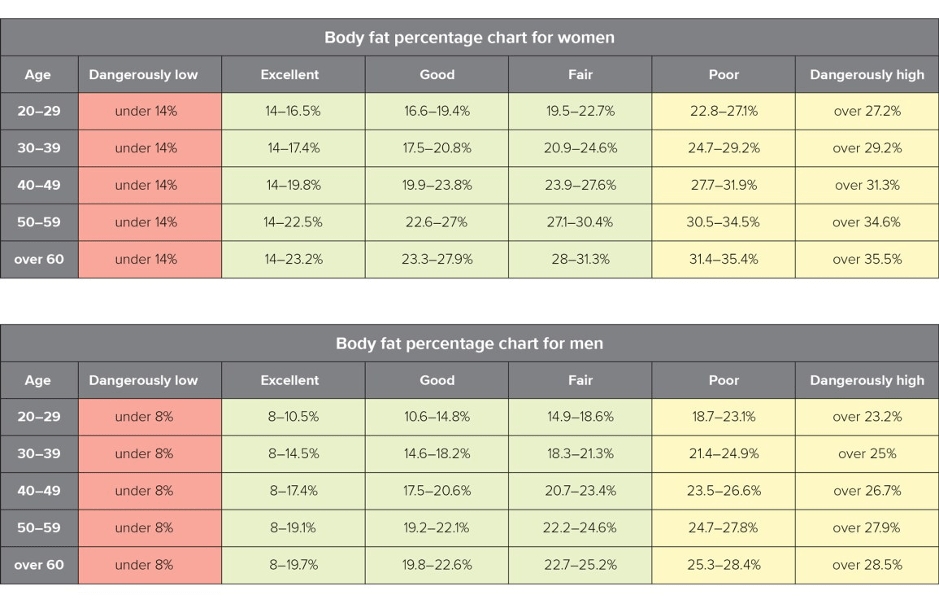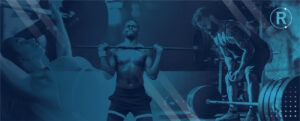Rugby is arguably one of the most body-type inclusive sports around. Unlike long-distance running, which is dominated by super-slender ectomorphs, or bodybuilding, which is dominated by naturally muscular mesomorphs, whatever shape you are, there is a place for you on the rugby field.
Rugby backs and forwards tend to be different sizes, with the forwards usually bigger than the backs. Backs are built for agility and speed, while the forwards are built for strength.
While this IS a generalization, and there are always exceptions to the rule, it’s true enough that you can often guess a player’s position from their build.
Since rugby become a professional sport, ruggers have become noticeably leaner, fitter, and more muscular. Sports science has also progressed in leaps and bounds. This is especially noticeable at the elite level of the sport, but many amateurs take their rugby training seriously too.
As a result, ruggers have slimmed down, and there aren’t as many obviously overweight ruggers as there were in previous decades. This is true at all levels – amateur to international.
Again, there are exceptions to the rule, and some ruggers are noticeably overweight, even at the elite levels of the sport. This raises some interesting questions: How can ruggers be fat AND fit? How does being overweight affect playing performance? And does being overweight and fit affect health?
Bodyweight vs. body composition – know the difference!
Firstly, it’s important to differentiate between body weight and body composition. That’s because your scale weight is not necessarily all that important.
Your body is made up of a host of components, including muscle tissue, internal organs, skin, blood, brain, bones, and fat. When you hop on the scales, the reading you can see is your body mass – the sum total of all of these components added together. If you are very muscular, taller than average, or just very well-hydrated, your bodyweight may appear higher than it should be.
Ruggers often score poorly on Body Mass Index (BMI) tests, where height and weight are compared, simply because they are more muscular than the average person. You might have a high BMI and be labeled as overweight or even obese when you are actually leaner than someone who weighs less than you.
You can check your BMI here: FREE ONLINE BMI CALCULATOR, but don’t panic if you have a poor result!
In contrast, your body composition is the percentage of your bodyweight that is made up of fat. Calculated by using calipers, hydrostatic weighing, or Dual Energy X-Ray (DEXA) scan, this is a much more useful measurement than weight or BMI. With body composition, your weight is not an issue. You can be heavy but very lean, as many ruggers are, or light but overly fat.
Most ruggers should try and keep their body fat percentage in the green zones on the chart below. Very low and very high body fat levels could be detrimental to your health and could also affect your rugby performance.

Before you rush out to find your nearest caliper-wielding sports scientist, it’s important to understand that most people intrinsically know if they are lean or not. You don’t have to have a test to see that you are carrying too much body fat. It’s a question of self-honesty!
If you can’t flex it, it’s fat. If you can see at least an outline on your abdominals, you are probably relatively lean. If your waist and stomach push out over the top of your belt, you could probably do with losing a few pounds.
Knowing your precise body fat percentage can be useful for progress tracking and for motivational purposes too, but it’s usually self-evident if you are carrying more body fat than you should be. The proof is in your mirror.
Can ruggers be fit and fat?
The simple answer to this question is yes, ruggers can be fit and fat. To understand how this is possible, it’s necessary to explain what the term fitness actually means, as it’s often misused and misunderstood.
One accepted definition of fitness is “the successful adaptation to imposed demands.” When you exercise, you stress your muscles and cardiorespiratory system, which then adapts so that, next time, you are better equipped to cope with those stresses. Fitness adaptations are very specific – you’re fit for the type of exercise you do.
Rugby is a very demanding sport that requires high levels of strength, speed, power, agility, anaerobic, and aerobic fitness. Subsequently, rugby training involves all these elements too. If all you did was long-distance running, you’d be aerobically fit but probably too weak and slow for rugby. Similarly, if you did nothing but strength training, you wouldn’t be aerobically fit enough to survive more than a few minutes of play.
That’s why rugby players tend to cross-train, and a typical rugby training program includes lots of different types of exercise. Ruggers are the ultimate fitness all-rounders!
These fitness adaptations will happen whether you are overweight or not. You can be fat and strong, and your cardiovascular system will respond to aerobic exercise whatever your body fat percentage is.
It could even be said that higher levels of body fat could enhance your fitness for rugby. Body fat makes you heavier and harder to push off the ball, provides you with protection from impact, and it’s often said it takes mass to move mass, suggesting that extra weight could help you hit other players harder.
But, before you start bulking up and pushing your body fat percentage upward, we also need to consider the negative impact that too much body fat can have on your rugby performance.
Body fat is stored energy. It also secretes chemicals and hormones and has a blood supply. For all intents and purposes, it is an organ. However, despite these critical functions, you don’t need a lot of body fat to stay alive, and too much soon becomes “dead weight.”
Imagine playing rugby while wearing a 50-pound backpack. Picture how much harder your muscles, heart, and lungs will have to work to carry that extra weight around the pitch. It will also make you slower, less agile, and you’ll probably fatigue faster too.
If you are carrying too much body fat, you run the risk of hurting your game just because you are making things harder than they need to be. Losing fat (while maintaining muscle mass and fitness) could result in a significant increase in performance.
That’s why aeronautical and automotive designers work so hard to trim extra weight from their planes and cars. Less weight means better performance for less energy, be that fuel economy, acceleration, or top speed. Weight matters!
That doesn’t mean that you need to achieve a single-digit body fat percentage to be a successful rugby player. But if you’re carrying so much body fat that it means you can’t play the way you want to, it may be time to overhaul your diet and shed some excess baggage.
Fatness and health
While you can be fat but fit, it’s much harder to be overweight and healthy, and your health is arguably more important than rugby fitness. Fitness and health are NOT the same things. As already defined, fitness is the successful adaptation to imposed demands, whereas health is the absence of disease and illness.
It’s entirely possible to be fit and unhealthy. You could be a top distance runner but be so lean that your hormones are disrupted. You could be immensely strong but have prematurely worn joints after years of heavy training and suffer from early-onset osteoarthritis. The fact is that some sports negatively affect health, especially at the elite level.
Being too fat can have a significant impact on your health. The long-term health risks of being overly fat include:
- Coronary heart disease
- Hypertension
- High cholesterol
- Type 2 diabetes
- Stroke
- Cancer
- Gallbladder disease
- Kidney disease
- Fatty liver disease
- Gout
- Respiratory problems including sleep apnea
- Joint problems including arthritis and gout
Being physically fit can help mitigate some of these risks, but it won’t eliminate them entirely. In some cases, intense exercise could cause problems in overly fat ruggers, such as suffering a heart attack or stroke while playing or training for rugby.
Unless you are a professional sportsperson whose livelihood depends on playing rugby, most people play sport for fun. It’s good for your physical and mental health – or it should be. Many of the benefits of playing rugby are much reduced if you are overfat, even if you are fit for your sport.
Fatness vs. fitness: It’s a question of balance
So, you CAN be fat and fit, but probably can’t be fat and healthy. That doesn’t mean you need to get ripped like a fitness model. Very low levels of body fat can be as problematic as very high levels, both to your rugby performance and your health. However, very high levels of body fat are not good for you either.
Most ruggers should seek a balance between realistic, sustainable body fat levels, performance, health, and enjoyment – both of food and exercise. Extremes are best avoided as they are usually unsustainable and unpleasant to achieve.
The best way to reach and maintain acceptable body fat levels is to adopt a long-term approach to healthy eating and exercise. Don’t rely on crash diets, weight loss supplements, or any other quick fixes. They don’t work.
Instead, gradually overhaul your lifestyle and diet, making changes that you can live with not just for a week or a month, but forever. That way, you won’t just lose fat, only to regain it again, but keep it off forever.
If being overfat is hurting your rugby performance, it’s probably hurting your health too. Be honest with yourself and, if you know you could stand to lose some body fat, start taking steps to remedy the problem. The longer you leave it, the longer it will take, and the higher the risk to your health will be.
Or don’t – and just hope your team can find you an XXXL pair of shorts for next season!


